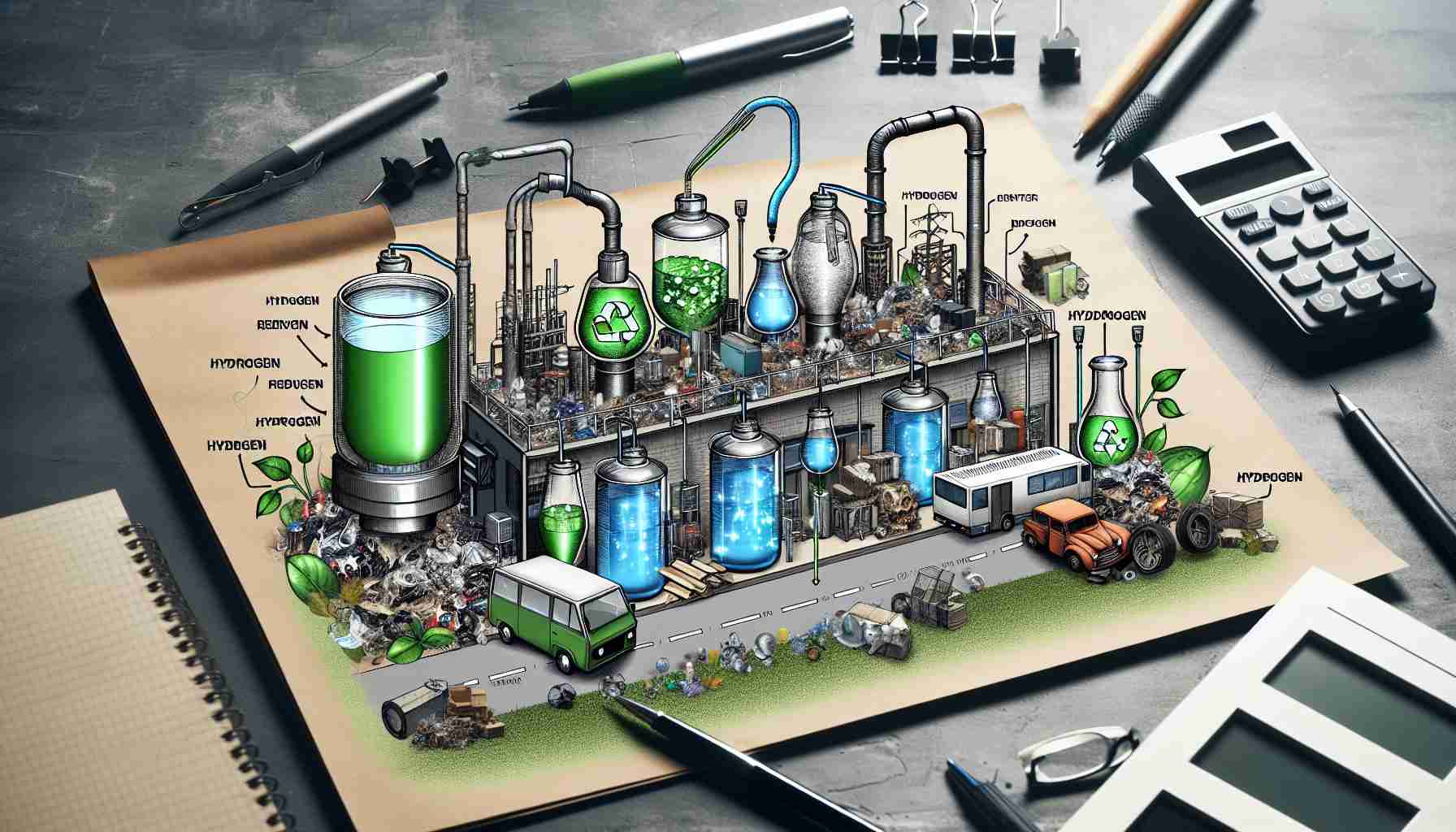Hyundai Motor Group has introduced groundbreaking methods for producing hydrogen using organic waste and plastic that cannot be recycled. These innovative processes, known collectively as the HTWO Grid solution, are set to make a significant impact on the sustainability of hydrogen fuel generation.
With plans to produce approximately 30,000 tons of hydrogen annually across two facilities, this initiative aims to secure Hyundai’s position as the largest hydrogen producer globally. The first facility employs a waste-to-hydrogen approach by utilizing various organic materials, such as leftover food and sewage, to create fuel. This process involves microorganisms that digest the waste anaerobically, resulting in biogas that is converted into hydrogen.
In Chungju City, South Korea, a functioning plant is already converting over 1,000 pounds of hydrogen daily from 60 tons of food waste. The ambition is to establish smaller processing units in different regions, thereby minimizing logistics costs and promoting the widespread use of cleaner hydrogen as a fuel source.
The second facility focuses on converting non-recyclable plastics, including contaminated items and composite materials, into hydrogen. By implementing a multi-step processing method that eradicates impurities and transforms plastics into a gaseous state, this system offers a dual benefit: addressing plastic pollution while generating a sustainable energy source.
Together, these initiatives reflect a commitment to a cleaner energy future and contribute to reducing landfill waste on a global scale.
Unlocking Sustainable Hydrogen Production: Tips, Life Hacks, and Interesting Facts
In an era where sustainability is paramount, the groundbreaking initiatives introduced by Hyundai Motor Group for producing hydrogen fuel from organic waste and non-recyclable plastics offer exciting opportunities. Here’s how you can tap into the spirit of innovation inspired by these developments, along with some intriguing facts related to hydrogen and sustainability.
1. Understand the Waste-to-Energy Concept
Many cities and local communities are adopting waste-to-energy projects. By understanding these processes, you can advocate for or support similar initiatives in your area. Look for local government programs that encourage the use of organic waste to produce energy. Educating yourself about biogas production and its benefits is a great step towards embracing sustainable energy sources.
2. Composting at Home
Similar to the waste-to-hydrogen process, composting is a fantastic way to reduce organic waste and contribute to sustainability. By composting food scraps at home, you not only reduce the waste sent to landfills but also create nutrient-rich soil for gardening. This small change can have a significant environmental impact.
3. Promote Recycling and Upcycling
Understanding the importance of recycling non-recyclable plastics can inspire creativity. Consider hosting or participating in upcycling workshops where you turn waste materials into useful items. This not only reduces the amount of plastic waste but also promotes community engagement and awareness about recycling issues.
4. Educate Yourself on Hydrogen Fuel
Hydrogen fuel is often touted as a key player in the future of clean energy. Take the time to research the science behind hydrogen production and its potential uses. Understanding the distinctions between hydrogen from fossil fuels and renewable sources can empower you to make informed decisions regarding energy consumption.
5. Follow Local Hydrogen Initiatives
As cities and countries around the world begin adopting hydrogen fuel technology, keep an eye on local initiatives. Many areas are establishing hydrogen refueling stations and developing programs to support the use of hydrogen-powered vehicles. Participating in these initiatives can play a role in the broader shift toward sustainable energy.
Interesting Fact: Did you know that hydrogen is the most abundant element in the universe? It makes up about 75% of the elemental mass of the universe! This property opens up vast possibilities for harnessing hydrogen as a clean energy source.
6. Participate in Community Clean-Up
Participating in community clean-up days helps reduce pollution and raises awareness about waste management. Many communities organize events focusing on cleaning local parks, beaches, and neighborhoods. Getting involved can help keep plastics out of landfills while fostering a sense of community responsibility.
7. Explore Eco-Friendly Transportation
As hydrogen fuel technology develops, consider exploring hydrogen-fueled vehicles if they are available in your area. These vehicles provide a clean alternative to traditional fossil fuel-powered cars, contributing to lower emissions and improved air quality.
For further insights and more sustainable practices, check out the related initiatives by sustainable organizations. You can find valuable resources at Hydrogen Fuel News to stay informed on all things hydrogen and clean energy.
By integrating these tips and exploring the facts surrounding hydrogen and sustainability, you not only contribute to a cleaner environment but also partake in the global movement toward innovative energy solutions. Embrace the change, support sustainable practices, and together, we can foster a healthier planet for future generations.

